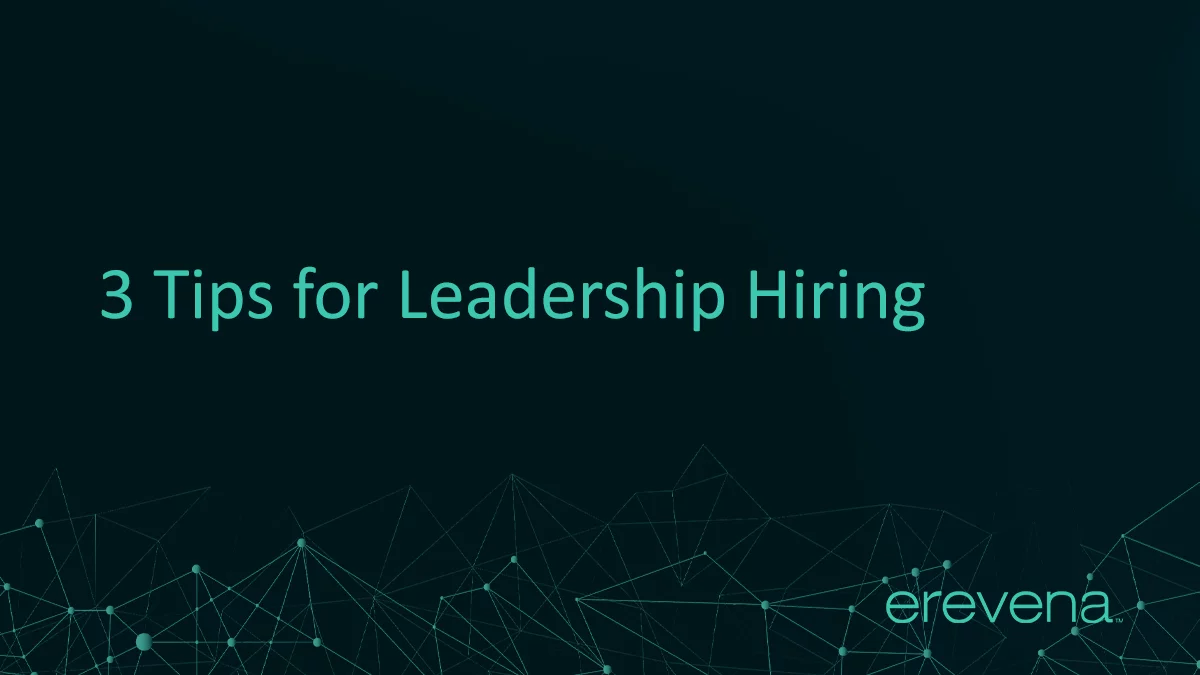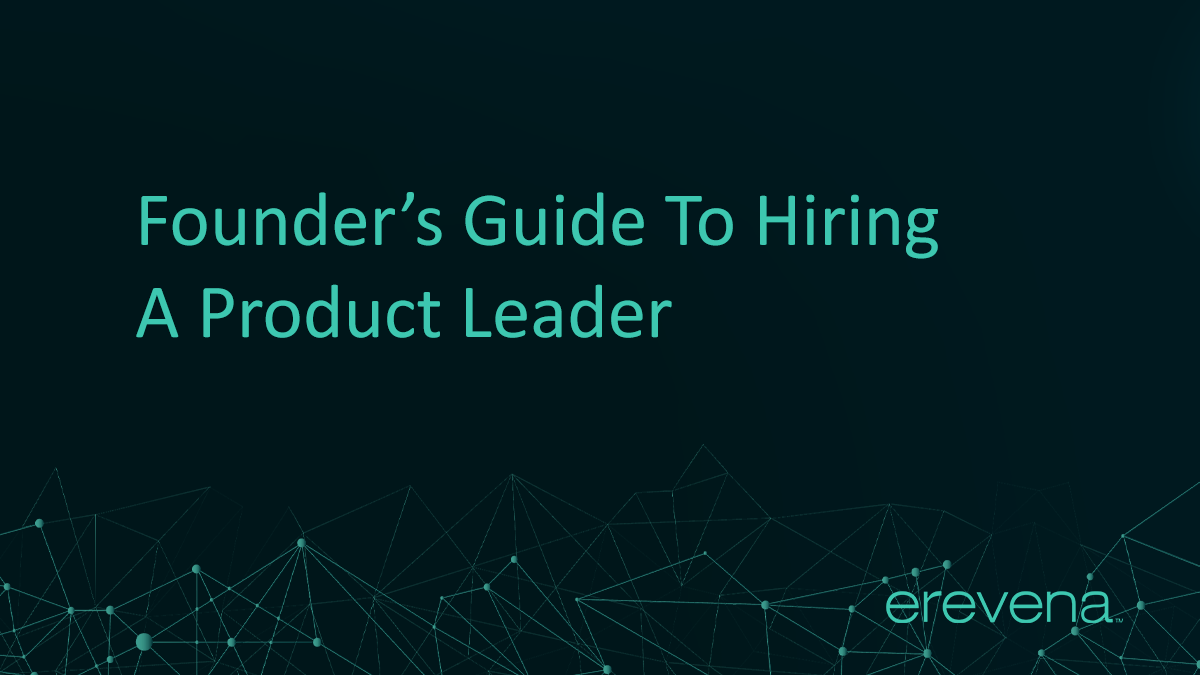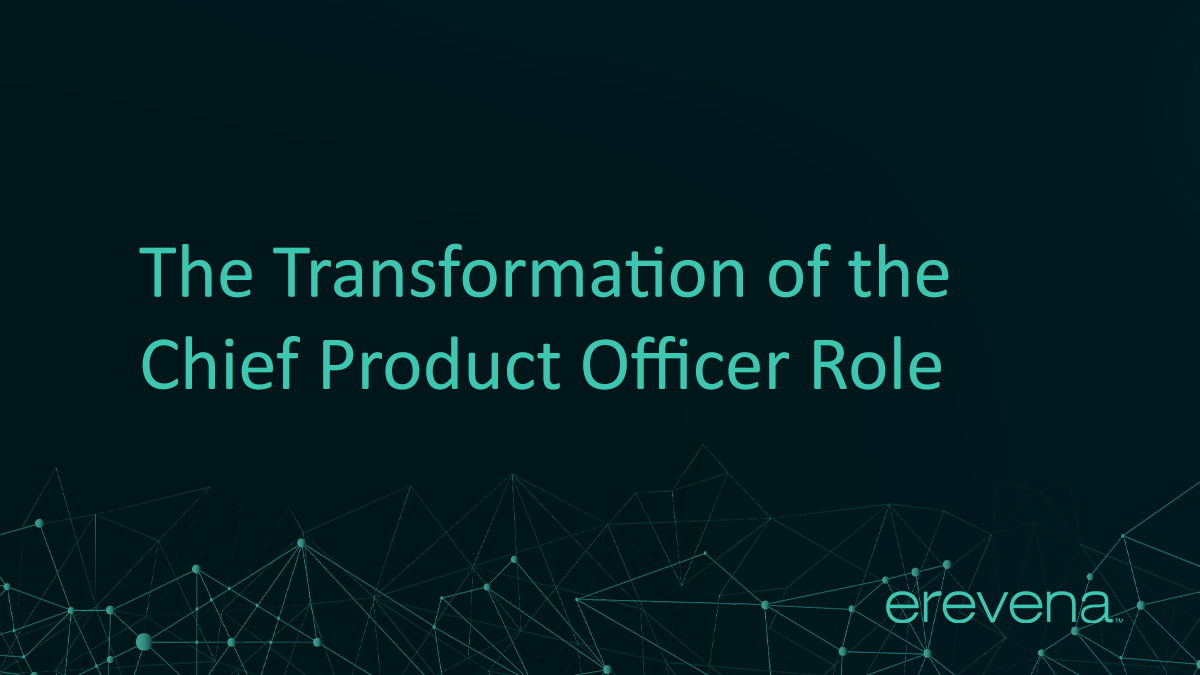Tips from Founders & CEOs who’re doing it…
1. Don’t underestimate the time it takes to hire leaders
“I believe getting [leadership] hires right will be the determiner of success or failure for our long-term. I said, ‘I’m going to do one per quarter for the next two years.’ That’s exactly what we ended up doing. There’s one point in time where I got impatient, and I tried to do two in a single quarter, and I almost killed myself.” – Sameer Dhokalia on his time at Sendgrid.
It’s hard to put an average figure on the number of candidates that you’ll meet for every VP or C-Level appointment that you make, but for each one it’ll be at least an hour of initial calls with a search firm if you’re using one, or a few hours searching through LinkedIn and asking your network for potential candidates if you’re not. And then once you’ve kicked off your search, there’ll be an hour for an initial call with each candidate that has passed a search firm/network screening test, plus an hour each for everyone on your leadership team and then a few more hours of discussion, final presentation, figuring out an appropriate compensation package and then closing.
All-in-all, you need to budget 2-3 hours per week as an absolute minimum for each leadership hire you’re doing. When you’re already time poor (fundraising, leading product/tech/ops, finding a new office, etc etc) assuming that each leader can do one additional leadership hire per quarter is good rule of thumb.
Spenser Skates, Co-founder & CEO at Amplitude puts the time commitment even higher, noting that “more than 50 percent” of his time is spent on leadership hiring. More details on his thoughts on that can be found at the SaaStr blog here.
2. Try to remember that hiring is a two-way street
“[When] we started looking for a CFO… [We] started the search, and we found someone in Atlanta, the former CFO at MailChimp. First, she was like, ‘I don’t know.’…
We just started collaborating a little bit on the side, so she could get a feel for it. Then she’s like, ‘This is actually pretty effective.’” – Wade Foster, CEO of Zapier. ‘She’ in this story is Jenny Bloom, CFO of Zapier since 2016 and previous CFO of MailChimp.
At Erevena, we often hear that Founders and hiring managers don’t want to speak to candidates that aren’t immediately passionate about their business. But the reality is that approaching a job opportunity with some caution doesn’t mean that a great candidate doesn’t think your business isn’t incredible – it often just means that they want to make sure that it’s the right decision for their next step, and they want the Founder or hiring manager to be confident of working with them, too.
There are so many risks inherent in hiring leaders, and as many risks for leaders taking new roles. What if the Founding team fall out and you have to pick up the pieces? What if the product isn’t what it seems at first and there is a lot of debt to unpick? What is the opportunity cost of taking this job versus that job? The list goes on!
The very best leaders out there will likely have the most options for their next move, so if you’re hiring into a high growth business you should be aware of this and of the risks being taken by the candidates.
This isn’t to say that you should roll out the red carpet and ‘sell, sell, sell’ to every candidate. It’s more about remembering that’s it’s a collaborative process: try to spend as much time answering candidate questions as you do asking them, if you don’t want to be left hanging for weeks for a post-interview update and then not give timely feedback to a candidate either, be aware that they will have busy diaries so you might need to move a few things around to meet them, amongst other things.
3. Recruiting for leaders who are good recruiters
“I would argue that a leader really has to do three things well. They have to recruit well, they have to develop their people and then they have to get their people to execute. If you do a really good job in recruiting, the other two become very easy. If you do an average job in recruiting, you can spend all your time on development, making them, training them, coaching them and all that, but you only have a mediocre outcome.” – Dev Ittycheria, President and CEO of MongoDB
As your business scales, you’ll have to scale yourself too. As mentioned above, it might be the case that 50% of your time is spent on hiring, so you’ll need to find other people that can do that, too.
How should you check that your new leaders are good recruiters? Ask about it at interview stage with candidates. ‘Have you done much hiring in the past? Are you excited about the prospect of building a team? What interview processes or questions do you prefer? How much of your time would you anticipate spending on hiring?’
If you can find people who enjoy scaling your business, and are good at it – it’s half the battle won.
Credits: massive thanks to SaaStr.com for providing the quotes above – all of which are available at Saastr.com, a goldmine for hiring and scaling advice.
Maddy is a Partner in Erevena’s London office, specialising in Marketing and People Operations/HR leadership hires. She works across Europe, in businesses from Series A to IPO, and was previously a Talent Director for a VC fund in London.
Share this article:













